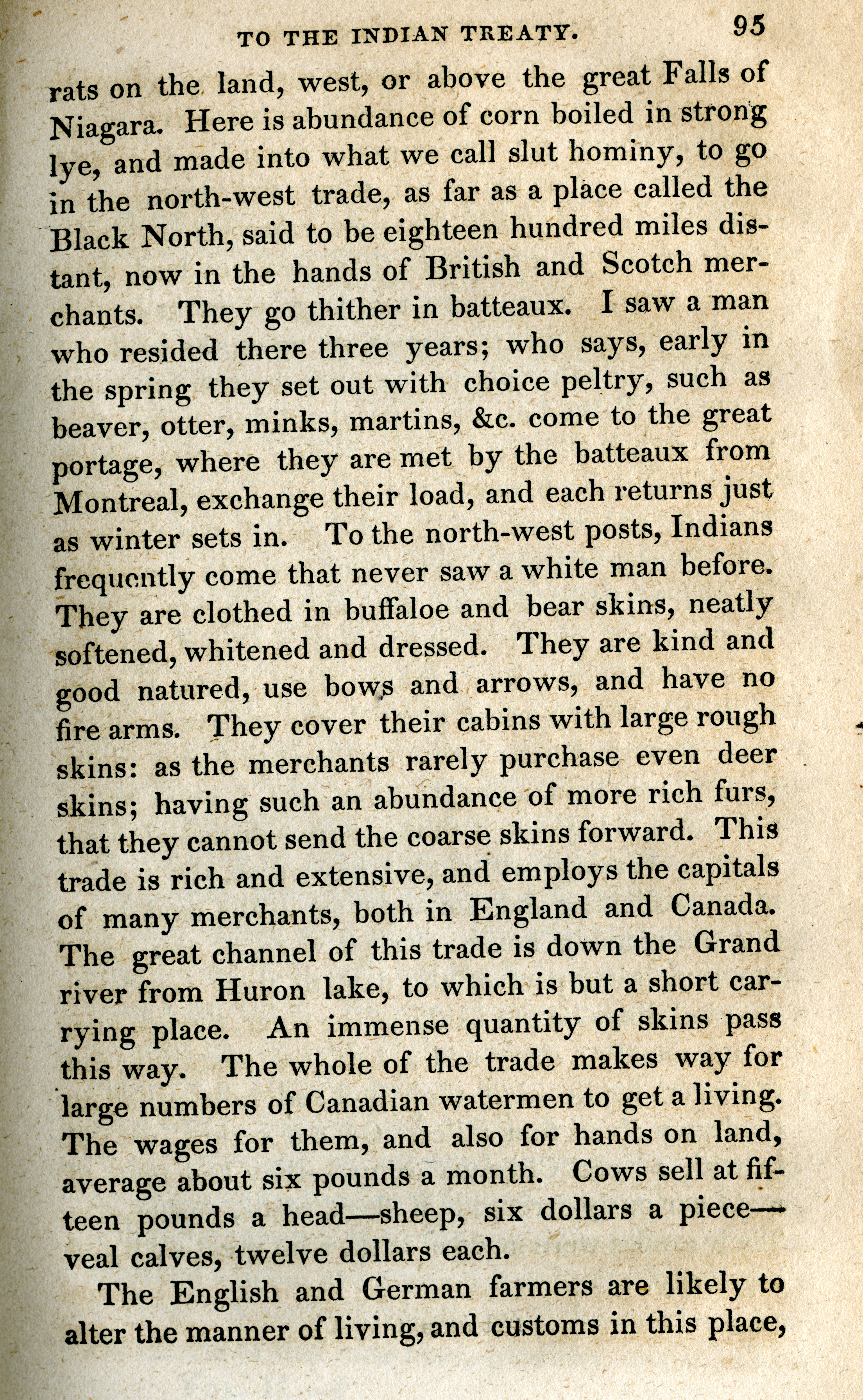rats on the land, west, or above the great Falls of
Niagara. Here is an abundance of
corn boiled in strong
lye, and made into what we call slut hominy, to
go
in the north-west trade, an far as a place called the
Black North,
said to be eighteen hundred miles dis-
tant, now in the hands of British and
Scotch mer-
chants. They go thither in batteaux. I saw a man
who
resided there three years; who says, early in
the spring they set out with
choice peltry, such as
beaver, otter, minks, martins, &c. come to the
great
portage, where they are met by the batteaux from
Montreal, exchange their load, and each
returns just
as winter sets in. To the north-west posts, Indians
frequently come that never saw a white man before.
They are clothed in
buffaloe and bear skins, neatly
softened, whitened and dressed. They are
kind and
good natured, use bows and arrows, and have no
fire arms.
They cover their cabins with large rough
skins: as the merchants rarely
purchase even deer
skins; having such an abundance of more rich furs,
that they cannot send the coarse skins forward. This
trade is rich and
extensive, and employs the capitals
of many merchants, both in England and
Canada.
The great channel of this trade is down the Grand
river from Huron
lake, to which is but a short car-
rying place. An immense
quantity of skins pass
this way. The whole of the trade makes way for
large numbers of Canadian watermen to get a living.
The wages for them, and
also for hands on land,
average about six pounds a month. Cows sell at
fif-
teen pounds a head— sheep, six dollars a piece —
veal calves,
twelve dollars each.
The English and German farmers are likely to
alter the manner of living,
and customs in this place,

